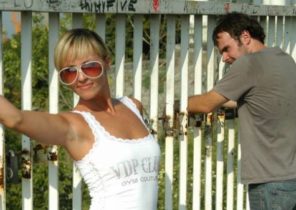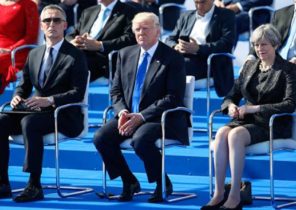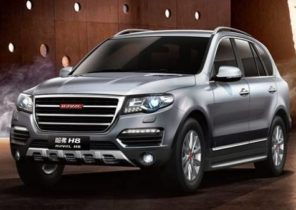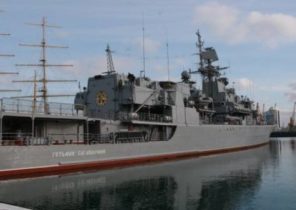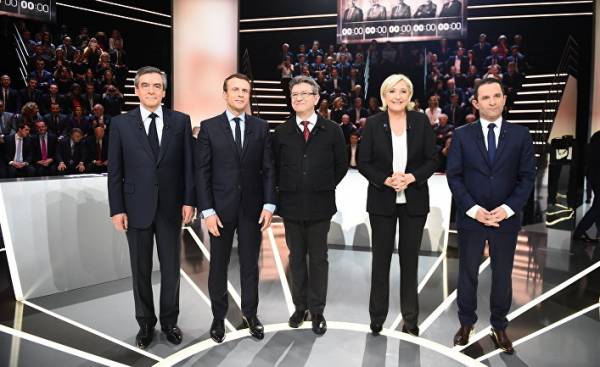
Us President Dwight Eisenhower said that plans are nothing and planning is everything. The meaning of the apparent paradox in the understanding that no single plan is never clearly fails, but only after clearly identifying what we want to achieve and what means are at our disposal, we can prepare ourselves for the inevitable surprises and deviations from forecasts.
In this spirit ought to be considered submitted in early March, the President of the European Commission Jean-Claude Juncker scenarios for the future of the European Union, which will be the focus of the discussions of the solemn summit of heads of States-members of the bloc, when they gather to mark the 60th anniversary of the document on the basis of the EU — the Treaty of Rome.
Juncker has presented five models of the EU range from “only the free market to do much more together.” The first model would actually mean collective Brexit, because free trade in goods without Brussels add-ons and without the free movement of labour is exactly what always wanted eurosceptics in the UK. At the other end of the spectrum is proposed federalism. What else can mean the promise of “achieving economic, financial and fiscal Union” or that “decision-making will be accelerated and their enforcement will be strengthened in all areas”? None of the extreme options are not acceptable to the EU and its further development will be driven by willingness of groups of individual States to deepen cooperation in specific areas.
The interests of Latvia in the present situation remain the same as they were since the restoration of independence. All these years we tried to join various international organizations and structures for closer cooperation in the EU, because such an increasingly deep integration not only strengthens the security of Latvia, twisting our interests with the interests of other Western countries, but and protects us from protectionism in the major economies and at the same time gives the Latvian economy with more opportunities for growth. If we want to resign ourselves to the growing influence of Russia and the reduction of the access to the largest and most important markets in the West, it is necessary to continue this policy “all clubs”.
However, now a large uncertainty in the question of what in the future may become these “clubs”. This will determine not theoretical arguments, and political events, which do not obey the decision-making procedure in the EU. The most important of these events — the elections of the President of France, the first round of which will take place on 23 April, the second on 7 may. Now leading in the polls candidate marine Le Pen has promised to withdraw France from the Euro and to organize a referendum on withdrawal from the EU. However, polls also show that in the final round, Le Pen would lose to the second leading candidate of the social-liberal Emmanuel macron to. But if last year we learned something, is that the seemingly impossible can happen. In that case, if France, the state founder and the cornerstone of the EU, is taken out of the structures of the unit, it will require a major overhaul, and new forms of cooperation of European countries is unpredictable.
On the future of Europe will significantly affect also the policy of the United States. The EU was formed under cover of the shield of the armed forces of America, and until the election of a President Donald trump Washington never believed European integration contrary to its interests. Now the US President refuses to reach out to the Chancellor of Germany, his political allies during election campaigns in various European countries actively support the EU-hostile party, the Secretary of state Tillerson has no plans to participate in the forthcoming in early April, the meeting of foreign Ministers of NATO, but instead will meet with the President of China, and then travel to Moscow.
The growing estrangement of America from Europe could awaken the instinct of self-preservation on our side of the Atlantic ocean and to provide the pressure for deeper integration in the EU. And the election of the President of Austria in December, and presidential elections in the Netherlands in March, which suddenly mobilize the electorate helped to defeat the populists, inspire some hope that the “trump effect” forced the voters in EU countries to realize the seriousness of the situation and actively Express support for European values.
However, the impact of these processes on the future of the EU is impossible to calculate, mainly because of anti-European populism, even if he loses the election, firmly rooted in the political picture of the continent. For a large part of European citizens the existence of the EU is no longer taken for granted.
A program that forced those inclined to alienate, to change his mind and to eliminate the causes of their complaint still failed to create any thinker or politician. Including Juncker.
If you add to this unknown called Brexit negotiations on tensions, Putin’s willingness to support any forces that weaken the EU, and even some surprises that cannot be anticipated, wondering coffee grounds, then the probability that the EU leaders in Rome will be able to identify the vision about the development of block 2025, really seems small.
However, secured for 60 years of existence EU peace and prosperity are worth fighting for, and so if prepared now the plans seem to be “nothing”, then thinking and planning for the future of Europe it really is “all”.


